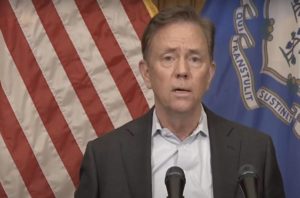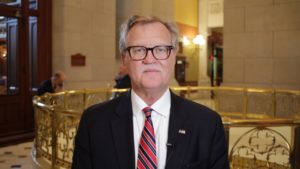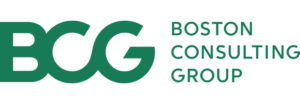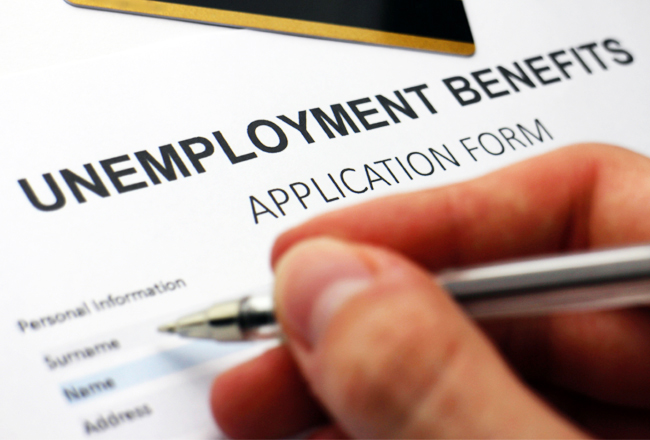Impatience among restaurant owners and questions about how an outside consulting group is working on Connecticut’s soft reopening on May 20 rose to the fore today, as Gov. Ned Lamont acknowledged.
 At the beginning of today’s briefing, Lamont said that June 20 is the tentative date to launch the state”™s second phase of reopening, and that gyms and indoor dining ”“ which are still not allowed to be offered ”“ could be part of that.
At the beginning of today’s briefing, Lamont said that June 20 is the tentative date to launch the state”™s second phase of reopening, and that gyms and indoor dining ”“ which are still not allowed to be offered ”“ could be part of that.
The Connecticut Restaurant Association (CRA) and 130 Connecticut business owners and leaders today sent a letter asking Lamont to allow eateries to offer indoor dining at 50% capacity, beginning June 3.
“We believe that limited, safe indoor dining is possible,” according to the letter. “As malls, hair salons and others are allowed to gradually begin indoor service (on May 20), as they should be, it makes sense restaurants would also be allowed some limited indoor service.”
“We hope the proposed compromises we”™ve put forward will be acceptable to (Lamont) and his team,” said CRA Executive Director Scott Dolch, “and that Connecticut”™s local restaurant industry and the 160,000 people it employs will be protected and helped during this incredibly difficult period.”
Among the letter”™s proposals:
- Limited overall restaurant capacity (50% to start) to allow for expanded distance between tables
- Absolutely no physical contact with staff
- No standing room or bar seating
- Added use of gloves and masks
- More intensive cleaning between customer interactions
- Implementing new technology for menus and payment to allow for less direct contact
- Eliminating shared-use tabletop accompaniments (menus, condiments, etc.)
- Encouraging older adults and those with preexisting conditions not to dine indoors, and continuing to offer takeout and curbside options for all patrons
A pair of legislators who also own restaurants were present at today”™s briefing. State Sen. Paul Formica (R-East Lyme), ranking member of the Appropriations Committee, operates Flanders Fish Market in East Lyme, and state Sen. Christine Cohen (D-Guilford) operates Cohen”™s Bagel Co. in Madison.

Asked if they agreed that indoor dining should be allowed by June 3, Formica said he “hope(s) we”™re open to those discussions. I don”™t want to give up July and August for a hurried reopening. Let”™s proceed cautiously ”“ if it”™s healthy and safe to open up, then we can open up.”
Regardless of whether that would include 50%, 25% or some other figure, “I think we will be able to work collaboratively” to find a broadly acceptable solution, he said.
Lamont was less agreeable. “Look, I”™m going to err on the side of caution,” he said. “You”™re 90% more likely to catch an infection inside than outside.”
Customer confidence will be key to any such decision, both Lamont and Cohen said, with the latter noting that enforcement of mitigation efforts remains an open question. Having the proper PPE and sanitizing equipment on hand by May 20 are among the concerns that many small businesses still have, Cohen said.
Formica added that while his restaurant has a deck and other outside space for seating, various other eateries do not. The threat of inclement weather represents an additional challenge, he said.
Food trucks will also be allowed to operate, which Lamont’s chief of staff Paul Mounds said will be especially important to breweries who do not serve their own food.
Fasano balks at hiring of consultancy
On another front, Senate Republican Leader Len Fasano (R-North Haven) is criticizing the state”™s arrangement with the Boston Consulting Group, which will be paid up to $2 million to augment the work of the Reopen Connecticut Advisory Group.
 Lamont”™s administration hired BCG on May 9 to oversee that work through June 28. The hiring and details of the contract were not discussed or shared with the public or legislative leaders, Fasano said.
Lamont”™s administration hired BCG on May 9 to oversee that work through June 28. The hiring and details of the contract were not discussed or shared with the public or legislative leaders, Fasano said.
“When lawmakers first heard rumors of a consultant being brought in,” the Republican leader said, “we asked what was happening and were told this group was helping out and not charging Connecticut anything, no contract was ever shared, and there was never any update beyond that.
“Now,” he continued, “this consulting firm has been hired in the dark to be the state’s ‘control tower’ on one of the most significant issues ever to face our state, and they are being paid a significant amount using either state taxpayer dollars or federal taxpayer dollars when the state’s finances and core services are already under strain.”
Fasano further pointed out the disparity between the thousands of Connecticut residents and small businesses struggling financially, while BCG is receiving roughly $250,000 a week.
“Connecticut needs a reopening plan that instills confidence in the public and that recognizes the challenges working and middle-class families in Connecticut face every day,” he said. “The governor’s strategy of ignoring the people, and perhaps even his staff, and working with high paid consultants behind the scenes accomplishes none of these goals.
“If we want to open up the state of Connecticut, we need to open up the administration first,” the senator concluded.
Lamont responded by saying that BCG is doing the same work for New York, Rhode Island and Massachusetts. “We could do an RFP, get responses in 60 days and interpret it for a while, or we can get going,” Lamont declared, adding that the $2 million will be paid for by the federal government.
State statistics
Over the last 24 hours, 4,519 tests were conducted, resulting in an additional 522 positive cases, to bring those respective totals to 142,943 and 34,855. Hospitalizations fell by 31 to 1,158, while 84 additional deaths brought that total to 3,125.
Fairfield County recorded an additional 148 positive cases, and another 22 deaths, bringing those totals to a respective 13,636 and 1,068. Hospitalizations declined by six to 372.
Stamford has the most positive COVID-19 cases in the state, with 2,958, followed by Bridgeport (2, 625), New Haven (2,062), Norwalk (1,788), Hartford (1,618), Waterbury (1,562), Danbury (1,528), West Haven (898), Hamden (811), Greenwich (726), New Britain (711) and Stratford (685).
Other issues
Josh Geballe, the state”™s COO, confirmed that the state is now at or near conducting the 42,000 weekly COVID-19 tests that it has said is necessary before the May 20 reopening.
Questions about liability issues facing businesses as they reopen are still under discussion, Lamont said, while Mounds said that the plastic bag tax ”“ which was lifted during the height of the pandemic ”“ will be reinstituted soon; an announcement will probably come tomorrow, he said.
Lamont also said that a discussion with all 50 governors and Moody”™s Analytics revealed that Connecticut is generally in better financial shape than most of the others. Part of that is due to Connecticut”™s rainy day fund, which represents about 13% of its overall budget. That puts the state “near the top,” he said, while noting that it was far short of the likes of Wyoming (140%) and Alaska (85%).
Even so, Lamont said, those states rely heavily on energy as a source of their revenues, while Connecticut does not. Nevertheless, he said, Congressional passage of the latest pandemic relief bill ”“ expected to be approved by the U.S. House of Representatives on Friday, although less likely to be authorized by the Senate ”“ is seriously needed by all states.
The numbers
As of this writing, there are more than 1.38 million positive cases and over 83,000 virus-related deaths in the U.S., with over 240,000 recovered. Globally, there are over 4.3 million positive cases and in excess of 295,000 deaths, with more than 1.5 million recovered.






















The CDC re-opening guidelines recommend that re-opening does not occur until new-case confirmation numbers decline for 14 consecutive days — which is still not the case for CT… And there still seems to a lack of regional coordination of surrounding states regarding reopening…
The only question i have is, why isn’t Cuomo moving faster to reopen NY? We know he needs a Fed bailout but come on is the best way to achieve that?
new tax ned paid 2 million dollars for a consultant group because??? he is a moron